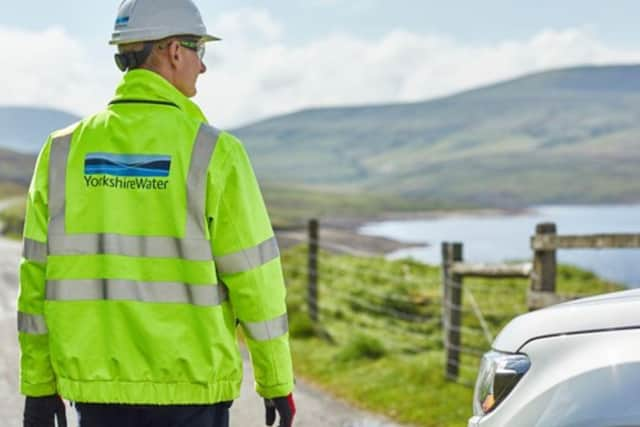Yorkshire Water customers told they must pay more to help cut sewage discharges
Yorkshire Water said the money will be used to support a five-year investment programme, worth £7.8bn, once it has been signed off by the regulator Ofwat.
That includes £3.1bn that will be spent on maintaining and upgrading the infrastructure used to deliver clean water and another £4.1bn that will be spent on protecting the environment.
Advertisement
Hide AdAdvertisement
Hide AdUnder the current plan, the average bill will rise from £438 a year in 2024/25 to £585 a year in 2029/30 – an increase of £147.


However, the overall figure will be higher when it is adjusted for inflation.
Chief Executive Nicola Shaw said the money will be used to cut the number of sewage discharges from storm overflows by 35 per cent by 2030.
She also said the number of spills in designated bathing waters during the bathing season (May-September) will be limited to two in coastal areas and one in inland areas, like the River Wharfe.
Advertisement
Hide AdAdvertisement
Hide Ad“We've really focused on what customers tell us is important – doing the right things for them and doing the right things for the environment,” she said.
“That is coupled with this extra package of support for customers to make sure those who are vulnerable can also afford to pay.”
The company has promised to set aside £250m which can be used to provide additional support to customers who are struggling.
The investment plan comes amid growing concerns about pollution, as water companies routinely discharge sewage into the waterways to relieve pressure on their sewage networks during spells of heavy rain.
Advertisement
Hide AdAdvertisement
Hide AdThe number of spills recorded in England last year fell by 19 per cent, to 301,091, but the Environment Agency said that drop was “largely down to dry weather”.
Critics claim companies have little interest in tackling this pollution and they have prioritised dividend payments for investors over infrastructure investment which would allow them to cut discharges.
They have also raised concerns about the water companies’ mounting debts, as they have collectively racked up borrowings of more than £60bn.
Yorkshire Water, owned by a consortium of overseas investors, reported a net debt of £6.1bn in 2022/23, when the amount it spent on loan interest payments rose from £281.9m to £427.6m.
Advertisement
Hide AdAdvertisement
Hide AdBut Ms Shaw said customers should not be concerned about the company’s debt and shareholders have agreed to invest £100m in the business by March 2025 and £440m by June 2027.
“We have it under control,” she said. “Obviously we will need to borrow some more money because we are making big investments for the long term and we don't want our current customers to have to pay for all of that.”